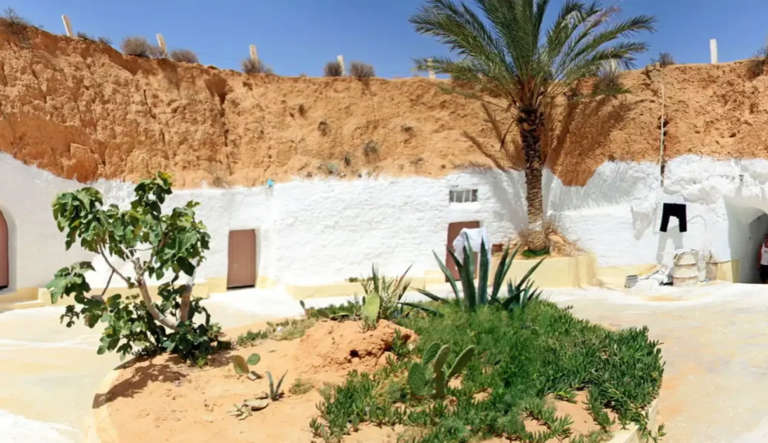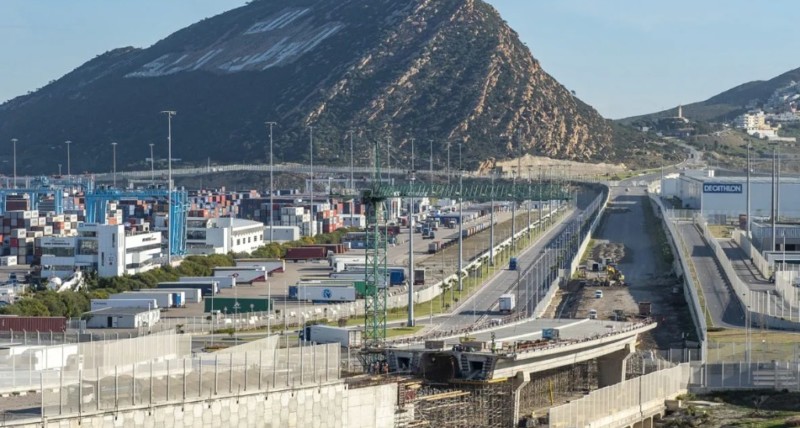In 2023, according to statistics, 78% of international travelers sought sustainable accommodations, and 64% were willing to spend more (+25%) for an environmentally-friendly experience. Yet, in Tunisia, only a few establishments hold a sustainable tourism certification.
As competition intensifies in the Mediterranean regarding sustainable tourism, Tunisia has the opportunity to strengthen its appeal in the responsible luxury segment. Alexandra Pelka, a sustainability and ESG (Environmental, Social, and Governance) consultant specializing in tourism and supply chain transparency, shares her insights on the future of this sector in Tunisian tourism.
« In a niche area in Tuscany, a hotel attracts affluent clients seeking authenticity and sustainability. Every detail, from solar energy to short supply chains, is designed to reduce environmental impact. This model could inspire Tunisia, where tourism is still struggling to fully integrate sustainability demands, » the consultant explains.
She also says, « My goal is to focus on the luxury tourism sector. It’s an area where I work closely with Daniele Nannetti, the manager of a luxury hotel in Tuscany, Italy. The establishment has become a model of sustainable hospitality while maintaining an image of refinement and luxury. »
Major Challenges
She continues: « I’ve identified several major challenges in the Tunisian tourism sector: the mistaken belief that luxury and sustainability are incompatible, financial constraints for initial investments, lack of technical expertise, absence of a coherent national framework, and low adoption of international certifications. I recommend an authentic and progressive approach, starting by promoting what is already authentically Tunisian rather than importing foreign concepts. »
Alexandra Pelka assures that her success lies in the organic integration of sustainability into an authentic luxury experience, creating a unique model of responsible well-being and total immersion in a typical setting. Tunisia, with its rich cultural, artistic, and environmental heritage, could adopt this approach by highlighting its cultural traditions, agricultural products, craftsmanship, and architecture in a contemporary and sustainable perspective.
« Authenticity is key: rather than importing foreign concepts, the goal is to reinterpret the Tunisian identity through the lens of sustainability, » Pelka explains. She notes that clients are willing to pay more for experiences that tell a consistent and engaged story. At least, this is what she often observes during her consulting missions.
« To address the misconception that luxury and sustainability are incompatible, I recommend creating a coherent narrative around sustainable initiatives. Clients are willing to pay more for experiences that tell an engaging story. I also advise targeting less seasonal markets to create more stable activity throughout the year and developing exemplary pilot projects that can serve as models for the entire sector, » the consultant points out.
She informs us that certifications such as ISO 21401 (dedicated to sustainable tourism), criteria from the Global Sustainable Tourism Council (GSTC), which establishes and manages global standards for sustainable travel and tourism, and the innovative sustainability certification framework (Equiplanet) have become essential to attract high-end clientele sensitive to environmental and social issues. According to her, « Equiplanet, » in particular, has become a benchmark ensuring rigorous and transparent ESG reporting. Pelka later discusses how Tunisia must strengthen the adoption of these standards, which requires a national strategy that includes training, tax incentives, and technical support for tourism and para-tourism establishments.
Strategic Partnerships
« These certifications open access to more profitable and less seasonal markets, while attracting investors who are increasingly attentive to sustainability criteria. Sustainability also involves finding a balance between environmental and social aspects, as well as economic sustainability, which is crucial for maintaining business profitability, » mentions Pelka.
To address the low adoption rate of international certifications, one solution would be to establish a tax incentive system for investments in sustainable practices. « I advise prioritizing strategic certifications like ‘Equiplanet’ that offer the best return on effort to obtain them and impact on attractiveness for clients and investors. Developing specialized training programs and providing tailored support for establishments is also essential. The importance of expert support is clear when comparing the financial performance between companies that choose projects at random and those that implement well-thought-out, integrated, and financially viable projects that are part of business processes, » she says.
She adds that Tunisia, already a popular destination for tourists, could perfectly become a Mediterranean hub for sustainable tourism. Partnering with international organizations such as the United Nations would bring international credibility and access to valuable networks. The key is to identify a few exemplary pilot projects that could serve as showcases and training centers for the entire Tunisian tourism sector. These partnerships would also help attract attention to local innovative initiatives and catalyze their development on a larger scale.
For Better International Credibility
The lack of a coherent regulatory framework is a major obstacle to the development of sustainable tourism in Tunisia. The solution would be to establish strategic international partnerships, such as the Hub for Fashion, Lifestyle and Tourism, which would bring international credibility and access to valuable networks.
The opportunities are considerable: adopting standards such as Equiplanet opens access to new markets and investors specializing in projects with a positive impact, such as reducing carbon footprints, conserving water, preserving local biodiversity, and creating fair jobs that directly benefit surrounding communities. The growing demand for authentic and responsible experiences presents a unique opportunity to better position Tunisia’s tourism offering in less competitive and more profitable segments. According to studies, in 2023, nearly 78% of international travelers were actively seeking sustainable accommodation options, and 64% were willing to pay, on average, 25% more for this type of experience.
For example, a high-end establishment that has implemented a local sourcing program and certified waste management saw a 32% increase in bookings, attracting high-paying Northern European clients even in the off-season. The first players to adopt this approach will gain a significant competitive advantage in a highly competitive Mediterranean market.
« To overcome financial constraints, it may be wise to adopt a progressive approach, focusing first on actions that are easy to implement, such as optimizing water consumption, before gradually investing in more ambitious projects, such as installing solar panels to cover a large part of energy needs. This step-by-step strategy often results in a quick return on investment, sometimes in just a few years. Strengthening collaborations with local producers and artisans also helps reduce the carbon footprint (by up to 40% in some cases), while creating distinctive gastronomic and cultural experiences that generate significant economic returns for local economies. Tunisia has all the necessary assets to establish itself as a true Mediterranean hub for high-end sustainable tourism, » concludes Alexandra Pelka.
Source: lapresse



